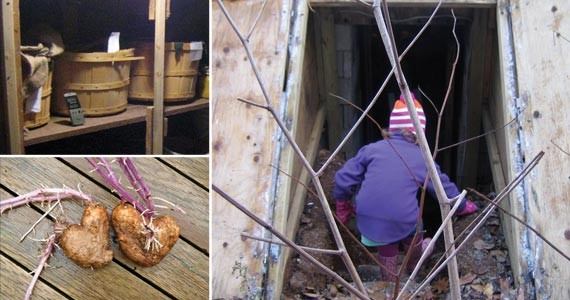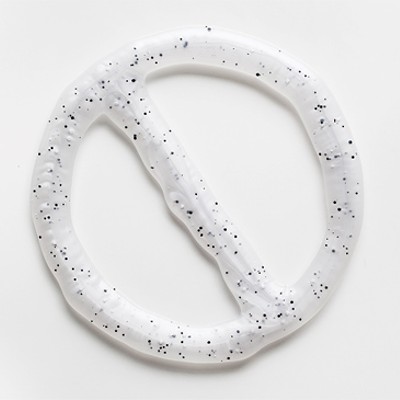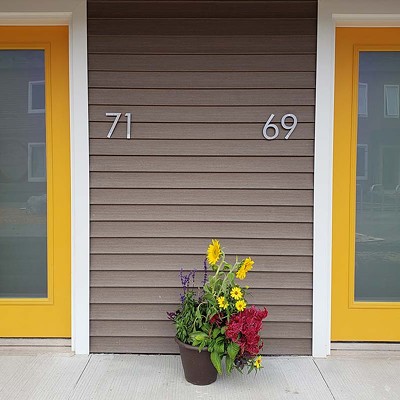Never has a cold, dark, damp basement seemed so appealing. Thanks to the revival of the root cellar, the usually unfavourable qualities found on the bottom level of many old homes in town are actually ideal for those seeking fridge-free cold storage, and perhaps a little springtime project.
Traditional cold storage can take many forms, from being dug into the side of a hill, to a dark little crawl space, but given the right conditions, constructing such a space is pretty doable for anyone. "If you have some basic construction skills it's essentially like building a closet," says Marla MacLeod, the Ecology Action Centre's food action coordinator. She's not only helped with the construction of the EAC's nearly two-year-old root cellar, but has one in her home as well, where produce like potatoes, beets, parsnips, cabbage, turnip, carrots and leeks can live happily, in large quantities, through the winter. "It's really economical to buy vegetables in bulk," says MacLeod. "People are often saying 'local food is so expensive' but this is a way to support your local farmer---when you're buying in bulk you're getting a better price."
Like MacLeod, the EAC's internal director Louise Hanavan also has a root cellar in her home. She recruited a group of friends to help convert a crawl space about three years ago. An avid gardener, Hanavan says she and her partner are able to grow their entire winter's worth of produce and keep it fresh thanks to her cellar. "Even if you're not growing your own food, it's a nice way to take a burden off the farmer," says Hanavan. "If there were a lot of people who had root cellars and it was normal to go to the farmers' market in the fall and just order 50 pounds of unwashed carrots that would mean the farmer wouldn't have to spend the whole winter coming into the market, wouldn't have to invest a lot in hiring people to wash the carrots and it would be cheaper for us."
The EAC built its root cellar in the spring of 2011, and has since operated as a community cellar, meaning board members and food action committee volunteers enter a lottery-style draw to vie for spots in the storage space space. Before the winter, the group puts in a large order to stock the cellar and share the responsibility of keeping an eye on it throughout the winter. Since building its own cellar, the EAC has been working to help fund other Nova Scotian non-profits' pursuits to build their own community root cellars. So far, six grants have been awarded to help the cause.
"Once it's built it's no-energy storage," says MacLeod. "For those looking to reduce their energy consumption it's a good way to go. And it's a way to support local farmers, or your own gardening habit. I think it gets you in touch with what we have here, and gets you creative about your food."
The cold, damp truth
Expert tips to get your cellar started for next winter.
First, you'll need an unheated basement in your home. Or an understanding landlord who's open to your little construction project. If there's a window you can build around (for ventilation) it'll make it much easier on you.
Marla MacLeod says it comes down to thinking like a root vegetable would: "You want a space that is cold, damp and dark. And then you want the ventilation because you want it damp, but you don't want mold. And that's kind of the basis of it."
She also recommends Root Cellaring: Natural Cold Storage for Fruit and Vegetables, a book by Mike and Nancy Bubel, that offers everything you'd ever want to know about on the topic, including alternatives to the basement cellar.
Surf to the EAC's blog, adventuresinlocalfood.wordpress.com, and read everything from musings on its cellar, a look at how it was built and tips on how much food to buy and how it should be stored.
"The expression one bad apple spoils the bunch---that's actually true," says MacLeod.
The goods you put in the cellar should be in pristine condition. Don't forget to rodent-proof to ensure you're the only one enjoying the fruit--- and vegetables--- of your labours.
















